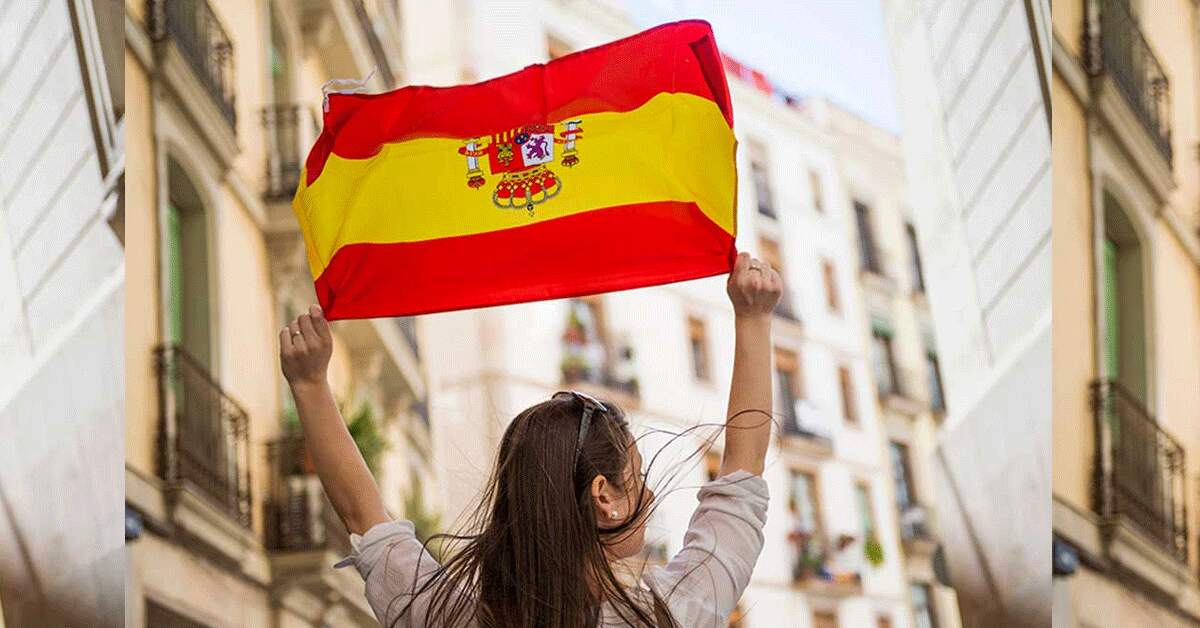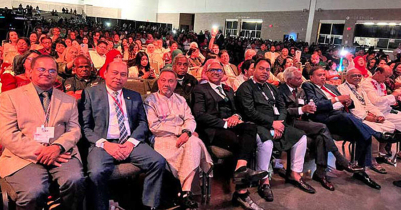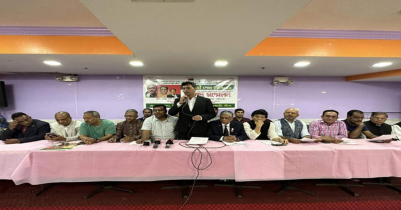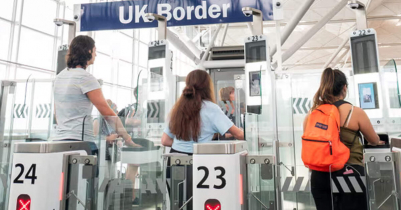Eye News Desk
Spain : Bill in Parliament to legalize 5 lakhs immigrants

More than 800 NGOs, migration organizations and associations have launched a petition drive under the program called 'Essential' to legalize irregular migrant workers in Spain. This collective initiative led to the introduction of a bill in the country's parliament on May 10 to legalize 500,000 irregular migrants.
The signature program has received an unprecedented response across Spain. A total of 7 million citizens of the country have signed this program. This popular legislative initiative led to the introduction of a bill in the Spanish Parliament to regularize 500,000 migrant workers.
Various rights organizations and NGOs campaigned in support of the initiative for several months to collect enough signatures.
Spanish constitutional expert Nicolas Pouthe said, "A citizen's bill has a chance of being discussed in the parliament if at least 50 million citizens have signatures according to article 87 of the Spanish constitution."
"Want to play a role in immigration policy"
The online campaign started last December with the support of mass signatures. Spokespersons of the Joint Platform of NGOs and Organizations presented the bill before Parliament on Wednesday, May 10, with more than 7 million signatures.
At that time the spokesperson said, “Many people are living in irregular conditions. They cannot be legitimate in any way.” One of the spokespersons is Lamin Sar. The Senegalese-born man has long campaigned for undocumented immigrants.
He told Spanish newspaper El Diario, "Among the migrants there are families whose children do not have access to health or education services. This distorted system has left them in extreme uncertainty.”
The representative also claimed, “We don't want to be a tool of exchange for another election year. We want to be the logical subject of politics. Want to play a role in immigration policy and public policy. which is involved in our daily life.”
Thousands of Spaniards are retiring
According to the Spanish Institute of Statistics (INE), the number of foreign workers in Spain has increased from 1.4 million to 2.4 million in the last 20 years. In other words, an average of 70,000 foreign workers have joined the Spanish labor force each year.
According to the government of current incumbent Pedro Sánchez, this figure is a necessary presence on demand. Because Spain needs to welcome at least 200,000 immigrants every year to cope with the pressure of an aging population.
But the conditions of regularization of irregulars in the country are very complex. Immigrants must prove that they have been in Spain for at least three years to obtain legalization. This has to be proved by a certificate of residence issued by the local municipality.
Besides, submission of a one-year work contract for at least 40 hours per week is also one of the conditions. But it is difficult for most irregulars to join. Because it is almost impossible for them to find legitimate work. Even if you find it again, it's not 40 hours a week.
Various legalization initiatives
In July 2022, Spain's Minister of Immigration, José Luis Escrivá, said, "It takes an average of seven and a half years for people who come to Spain in an irregular situation to obtain legalization."
Spain has recently taken several steps aimed at reducing this slowdown. In August 2022, Spanish parliamentarians adopted a legal reform initiative to facilitate the integration of thousands of people staying in the country into the labor market.
The proposal at the time called for a one-year residence permit for irregulars who had been in Spain for at least two years. However, as a condition, migrants are asked to enroll in vocational training.
Training is required on a sector where there is a shortage of manpower in the country. Among these sectors are tourism, transport, agriculture and construction. However, admission to these courses requires a minimum level of Spanish language and certain technical skills.
Immigration organizations and NGOs have claimed that the bill for mass regularization has been introduced in the parliament to get rid of such complicated conditions.
Read More
- 73 Street in New York is now called `Bangladesh Street`
- Announcement of Ramadan office schedule of Bangladesh Embassy
- Bengali New Year is organized for the first time in Times Square
- Bangladeshi expats in UAE start getting NID cards from June
- Bangladeshi E-Passport service launched in Italy
- Saudi launched E-Visa for Bangladeshis
- Qatar to enjoy an 11-day Eid Al Fitr holiday
- London lights up for the first time to welcome holy Ramadan
- DU teacher Anik Paul missing in USA
- Bangladeshi-American promoted to captain in NYPD






























